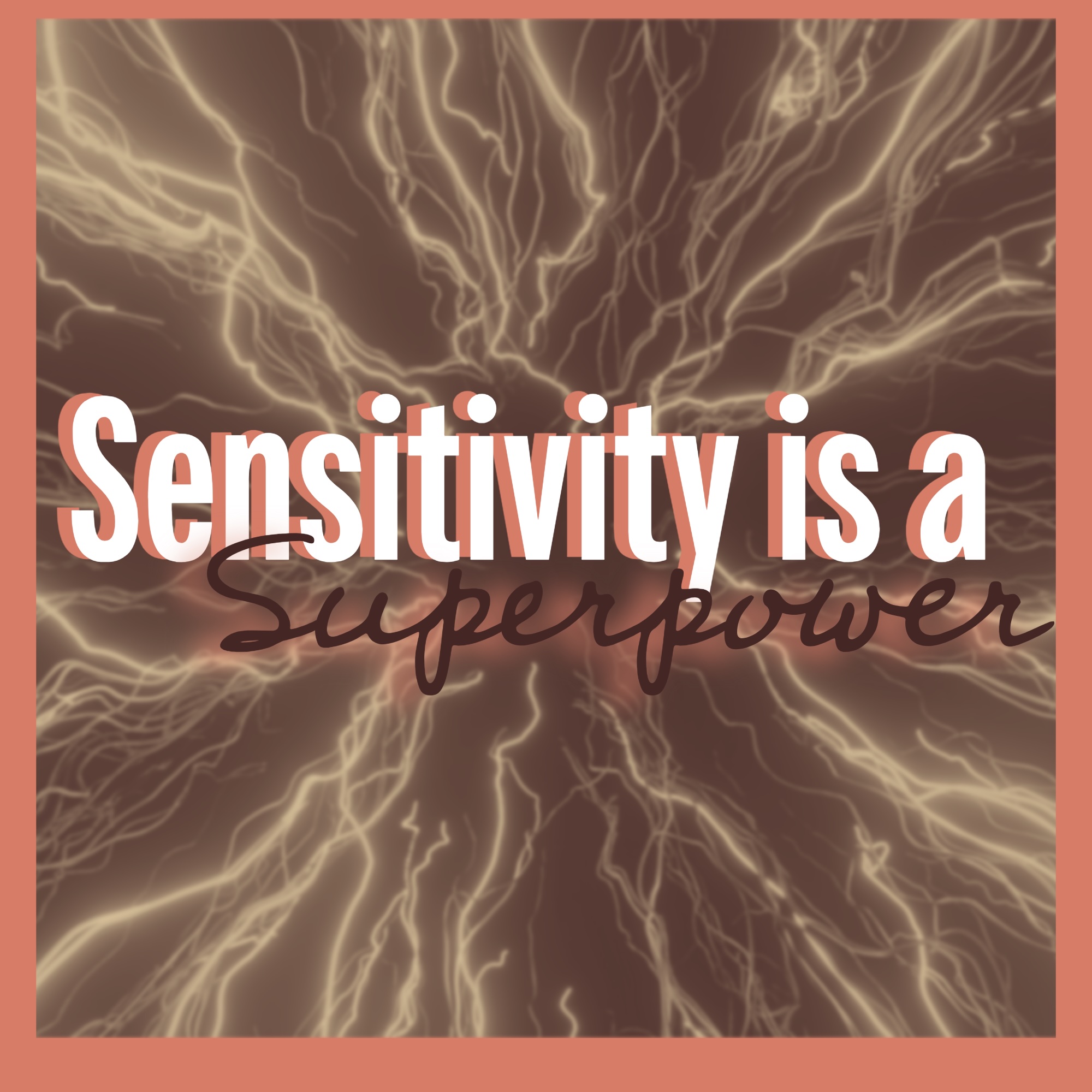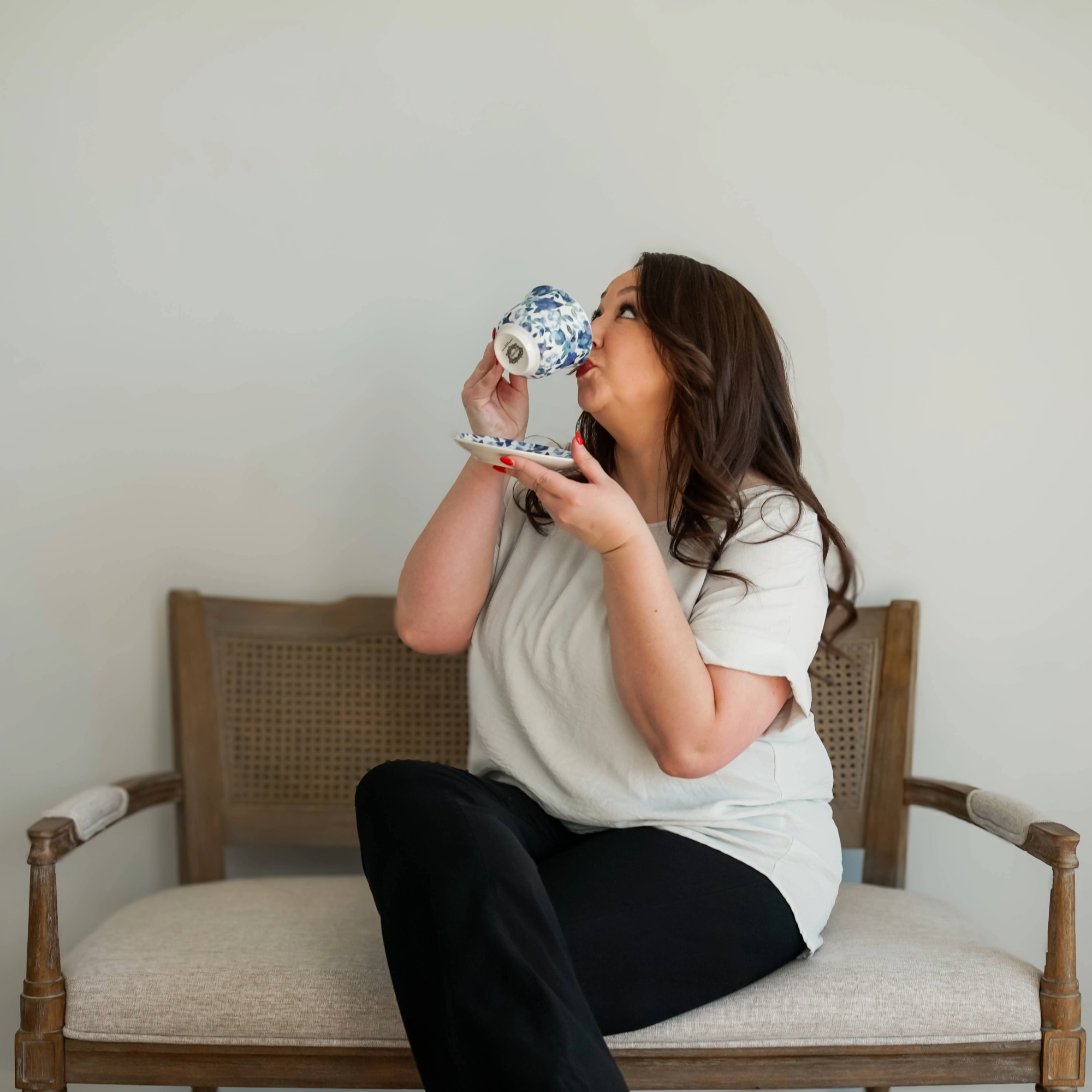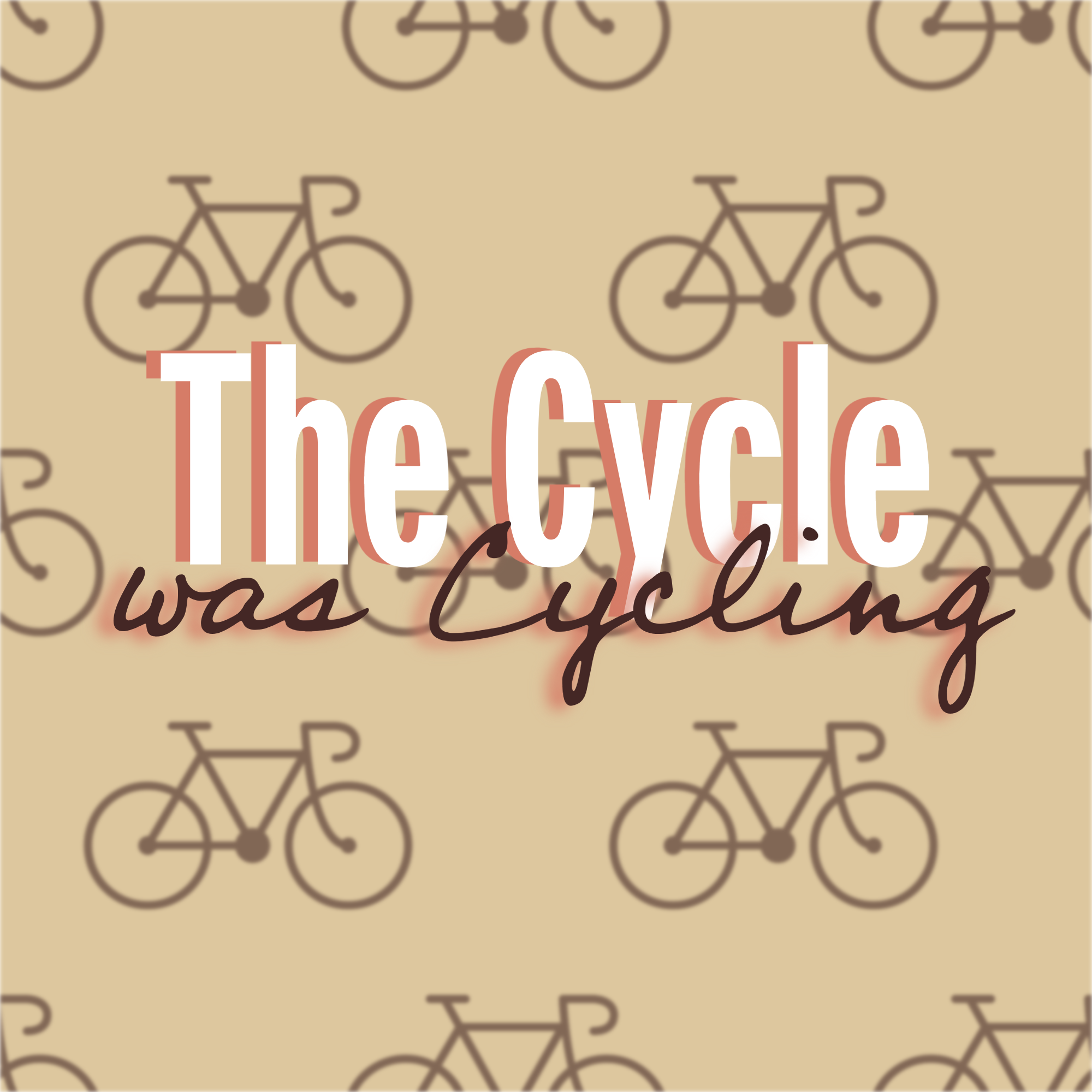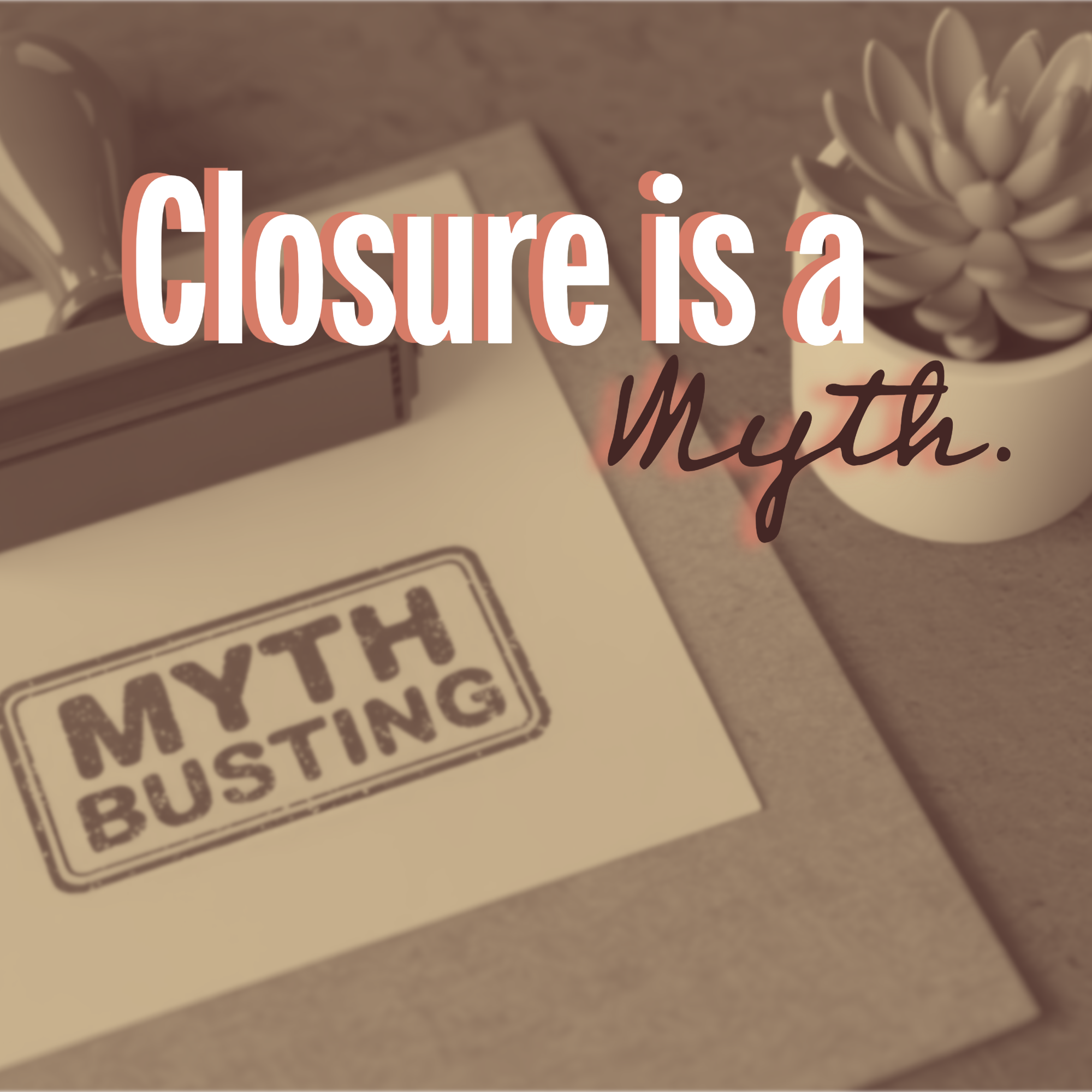In this week's episode, Lauren and Bree are joined by Licensed Professional Counselor Suzanne Fortnum for an insightful conversation on attachment styles, narcissism, and gaslighting. Suzanne shares her expertise on why women are sometimes drawn to unhealthy relationships and the psychological reasons we may justify harmful behavior. We hope you enjoy this engaging and thought-provoking episode!
View Full Transcript
Episode Transcript
Welcome back to Spill the THSV with Lauren and Bree. And today we have a very special guest. We have Suzanne Fortnum, who owns Suzanne Fortnum Consulting. Can you tell us a little bit about your company, please?
[00:00:43] Suzanne: Absolutely. And thank you guys for having me as a guest on this show. I'm Suzanne Fortnum. I'm a licensed professional counselor specializing in women's mental health across a lifespan. I support women through the transitions that shape us from navigating fertility and motherhood to career pivots, identity shifts, and other painful realities of intimate relationships. So whether you're in the thick of a difficult relationship, rebuilding after betrayal, or just starting to question the patterns in your life, I work for you. I help people to feel seen, validated, and empowered.
[00:01:16] Lauren: Yes, you do. I can test to this. I can contest to this, because Suzanne has actually been my therapist for eight years. So she has seen me through living in D.C. and my job there and my transition down here, and then she has been there through the entire relationship with Dick. So she knows everything.
And would you say that I missed some red flags?
[00:01:46] Suzanne: Yeah, I would definitely say that there were some red flags missed. Although I do have to correct you from your first episode. You said, my therapist was so disappointed that you missed the red flags. I wasn't disappointed. This can happen to any of us.
[00:02:01] Lauren: Thank you. Yeah, I was disappointed. I was disappointed in myself.
I'm like, I've worked on this for so long.
[00:02:10] Suzanne: But that's the thing. We all have blind spots. Right. And that's why we need somebody to hold up the mirror for us to recognize those blind spots. And even then, we still some. We still drive right on by.
[00:02:25] Lauren: Yep, we sure do. Like, fast, like in a Corvette.
[00:02:28] Bree: No speed limit.
[00:02:29] Lauren: No speed limit. We just. We're just driving.
[00:02:34] Suzanne: But it's so easy because we're so patterned to drive by.
[00:02:39] Lauren: Yeah. Is that just because we just want to see the best in somebody? Like, what is it that makes us do this?
[00:02:45] Suzanne: You know, that is such an individual thing. Sometimes it is that we want to see the best. Sometimes the person we're with is helping us to feel validated, and so we don't want to see things any other way.
[00:03:03] Lauren: Yeah. Which makes sense. And I think, too, a lot of people just get comfortable and they just don't want things to change.
[00:03:09] Suzanne: Exactly. And even early on in the relationship, we can get pulled in, and that's the time we tend to miss these red flags the most. Early in relationships, emotions are heightened. We've got hormones flying all over the place. A Lot of times, there's this idea of the fantasy of, like, what this person can be, what this relationship might be for us or mean for us. And then we start to project onto it, and it can be hard to let that go.
[00:03:37] Lauren: Yeah. And I mean, you know, I think that for me, I kept just justifying all the love bombing. Quickly he moved in and all those things, because I was like, this is how it's supposed to be. Like, when you find your soulmate, this is it. I finally did it.
[00:03:49] Suzanne: Well, and that's a real thing that happens with love bombing is a lot of times we feel this soulmate energy, this deeper connection, because the person is showing us what they want us to see, not what actually is. And so that fantasy piece that I was just talking about, they continue to build on and validate that fantasy. And so a life and a partnership with them becomes idealized.
[00:04:17] Lauren: Yep. That makes sense.
[00:04:18] Suzanne: Yeah.
[00:04:19] Lauren: I told you she's good.
[00:04:22] Bree: I may be your next client.
Just heads up.
[00:04:28] Lauren: I told you.
[00:04:31] Suzanne: She hit the nail on the head, though.
[00:04:33] Lauren: But continue.
[00:04:36] Suzanne: I'm glad. I'm glad to know that it is helpful and that, like, this resonates for people. And, you know, I think this is something that we as women don't talk about enough because there's a shame piece attached to it in that when the relationship ultimately ends, and a lot of times with these relationships that start with these. This fantasy, this love bombing, we ultimately, ultimately end in a devaluing and a discard of the person, which sounds really harsh, but those are, like, clinical terms.
[00:05:20] Bree: And that resonates a lot with me because, like, I told you, my third husband, it was really weird because after, like, while we were going through our divorce process and everything, I didn't know much about attachment styles. And these videos kept popping up on my phone of one called dismissive avoidance. I had no clue what that was. And so whenever you say the word discard, like, that's relative to avoidance. They, you know, they. They discard you. They pull the rug out from under your feet whenever you're not really expecting it, and you. You know, you don't see it coming. So that. That hits home.
[00:05:51] Suzanne: That is very accurate about avoidance in general, and then also with narcissists as well. What we see in both of these cases as is a devaluing and a discard. And so one of the ways that I work with women is with recognizing attachment style. And the majority of the women I work with have what's known as an anxious attachment style. And if, you know, anything about attachment style. For whatever reason, anxiously attached are always drawn to avoidant attachment and vice versa.
[00:06:31] Bree: That was me.
[00:06:34] Lauren: You're like, done. That was it. Yep.
[00:06:36] Bree: I know my red flags.
[00:06:38] Lauren: So you mentioned narcissism. So. And I think that's a little bit of what we're gonna get into today because I know that it's a term that gets thrown around a lot. And a lot of people just say, like, if a guy's just mean to them, oh, he's a narcissist. It's like, well, no, there's more to it than that. So can you, you know, tell us what narcissism is?
[00:06:57] Suzanne: I am really happy to be on here and be able to. To highlight this really important topic because narcissism and narcissists in relationships has become kind of a buzzword or a trend recently. But here's the reality. We all have narcissistic moments, but that doesn't mean we're narcissists. The difference is whether there's self awareness, empathy, and a willingness to repair harm. So when we look at something like narcissistic personality disorder, by contrast, is it's like a lens through which somebody consistently views themselves as superior and superior to others, and other people are seen as supply or tools to be used and sometimes even threats to be managed if the narcissist can't rein them in.
[00:07:51] Lauren: So Dick would often say that I was a narcissist. Right. Because if he was here, he would say that, I think I'm better than everybody else, which I don't. But he used me as a supply the whole time, turns out, and left me with all the debt and picking up the pieces while he's out living his best life with his new supply. So can you talk about how narcissists will sometimes throw that back in your face and, like, try to turn it around on you?
[00:08:12] Suzanne: Absolutely. So I think where you're wanting to go with this is looking at the concept of gaslighting. And gaslighting is another one of those terms that is trendy right now and is often used to describe relationships or relationships that end poorly. But when we break down what gaslighting is, it is another person making you question your reality. And this can be through conversation, through emotional expression, through patterns in behavior where they consistently challenge your reality.
[00:08:57] Lauren: Yep.
[00:08:57] Bree: Such as saying, well, you're crazy or you're sensitive. You're just overly sensitive.
[00:09:03] Suzanne: Yes.
[00:09:04] Lauren: You're making it up in your head.
[00:09:05] Bree: Yeah.
[00:09:06] Suzanne: Yes. It's all in your head is a common one. Being sensitive is another common one. And a lot of the women that I work with, in addition to being high functioning, over performing, they're also highly sensitive. And one of the ways I address this with them is the idea of sensitivity as being a superpower. Because I feel like the idea of being sensitive is often looked down upon or seen as a weakness. And I think it's okay. I know it's okay to be able to say, you know what, I'm sensitive. And things hurt my feelings. And that's okay because that gives me empathy. That is. And that empathy is something that I Breeng to all of my relationships. Not just romantic relationships, but, you know, I talked about the high performing piece. Building relationships in the workplace, maintaining relationships with family, learning how to have difficult conversations and deal with conflict.
[00:10:10] Lauren: Yeah. And I think that that's something a lot of women can, like, relate to. You know, at the end of mine and Dick's relationship, when I would be crying and like begging him to talk to me and I knew something was up and I was like, just talk to me. And he would roll his eyes at me and tell me I was being like, ridiculous or sensitive or a million other things, and he would just ignore me and be like, you're doing this as soon as I get home. And I'm like, well, you've been gone all day. And turns out he was not always at work.
[00:10:36] Suzanne: Right.
[00:10:37] Lauren: And so he legit made me feel like I was crazy. And when he would tell me, you know, you're the narcissist, I'd be like, am I? Because I know I came to you with that and I was like, am I the problem? Like, is it me?
[00:10:47] Suzanne: So I would say like 99% of the time, if you are questioning whether you are the narcissist, you are not the narcissist in the relationship.
[00:10:56] Lauren: Yeah.
[00:10:56] Suzanne: Because if you go back to the definition that I gave around narcissism versus narcissistic traits, one, we all have narcissistic traits. But even with having those narcissistic traits, we also have empathy. Whereas narcissists don't tend to have that empathy.
[00:11:11] Lauren: No, they have no empathy. They just throw you to throw you to the side. Like, you don't exist for me anymore. I just lied to you for four years and made you fall head over heels and love me and spend all your money on me. But bye.
[00:11:22] Suzanne: That has been my experience.
[00:11:24] Lauren: Yeah.
[00:11:25] Bree: You know what I find interesting is so my second ex husband, he never had a great relationship with his mother. And, you know, everybody we all have, you know, different relationships with our family and things like that. When we got married, we went on our honeymoon, and she had been in the hospital for a voluntary surgery for her to. I think it was on her back in order for her to be able to walk to our ceremony site for our wedding. So she went into surgery so she could have that done so she could walk to our wedding site. She ended up getting really sick, and she had some infections. While we were on our honeymoon, she passed away. He did not want to leave. We did not leave. And I also had one of my best friends from high school passed away the day we got married, and he did not tell me until after we got to our honeymoon because he didn't want to leave.
[00:12:12] Lauren: Oh, my God.
[00:12:13] Suzanne: Wow.
[00:12:13] Bree: Yeah, I should have left right then.
[00:12:18] Suzanne: There is. Yeah, that is definitely a red flag.
[00:12:21] Bree: Oh, yeah, absolutely.
[00:12:22] Lauren: So, no, that's awful.
[00:12:24] Bree: But I think there was no empathy for anybody or anything.
[00:12:28] Suzanne: Even dead people.
Well, and it sounds like for you, Bree, with that marriage, you were so far in. You were on your honeymoon. Right. So you pass the early relationship. The emotional heightened. He would probably showed you or mirrored the traits that he wanted you to see. And so when that happens, we tend to override our own intuition for the sake of connection. And then it's like, okay, we get engaged, we get married, and it starts to feel like a sunk cost. Like, okay, I've already invested all of this time into, like, I'm married and on my honeymoon, so how do I make this work?
[00:13:06] Bree: And on my second marriage, at that. So it's like, I need to do the right thing, but in the end, it wasn't the right thing.
[00:13:12] Lauren: Well, and he's the one who kept telling you, you'll be okay through five miscarriages, which is literally insane.
[00:13:19] Bree: Yeah.
[00:13:20] Lauren: Can you go into that a little bit, like, as far as, like, again, no empathy, like, with a miscarriage. And I know that you have probably talked to plenty of women who have had them and have dealt with that miscarriage.
[00:13:32] Suzanne: We're getting better about talking about it, but it's still one of those things that we as a culture and society don't talk about enough. And when we do talk about it, it's often not acknowledged as a life.
Right, A life. And with that, a loss. And so it sounds like, as you were trying to work through your grief of losing your child, he was so disconnected from having a baby, from maybe even the relationship with you, that. That he didn't know how to offer any kind of comfort. Like he couldn't even feign empathy.
[00:14:17] Bree: Absolutely.
[00:14:18] Lauren: Which is just wild. We've said it before, but for anyone who goes through it, like, if you don't have a support system, reach out to us if you need somebody to talk to. You know, Bree's been through it, so she's happy to talk to people about it.
But yeah, I mean, it's, it's hard with narcissism because again, everybody uses it all the time. And so it's one of those things where it's like, how do you tell the difference between someone who's just having a bad day and does has like a narcissistic trait versus somebody who's like a true narcissism other than the empathy? Because that's the thing is, I don't think I noticed that Dick didn't have empathy until it was way too late. Because he, he could fake that, right? To an extent. To an extent he could fake. I mean, I mean, he came back literally bawling his eyes out, like, fell into me like boo hooing. But it was because his son's mom wouldn't take him back. And so he came back and I didn't know that or I wouldn't have took him back. But when I took him back, it was like. Was that fake? That's the thing. It's so hard for me because I'm like, how did you cry like that much and make me believe you to that extent?
[00:15:23] Suzanne: That is the manipulation piece. I think sometimes with narcissism that can come from like a deep sense of entitlement. So in that moment he was probably scared, but he wasn't scared of losing you. He was scared that he didn't have a source of supply.
[00:15:44] Lauren: Yep, he was scared. He didn't have a place to live. And.
[00:15:48] Suzanne: And so the bottom was falling out.
[00:15:50] Lauren: And it took me until like, you know, talking with you and after everything fell and went all to hell to realize that that's what it was. He wasn't crying because he missed me. He was crying because he was concerned for himself. And I think that's another trait. And correct me if I'm wrong, but being selfish narcissists are very selfish people.
[00:16:11] Bree: Very.
[00:16:12] Suzanne: Yes.
There's a lot of exploits, exploitation for personal gain and then there's that fragile self esteem.
[00:16:20] Bree: So would you say that narcissists, they're more materialistic than your average person?
[00:16:24] Suzanne: They can be. It depends on what they are needing to fill that wound. Sometimes it's materialistic, but sometimes it's like Emotional support and validation. And even if they're getting that emotional support and validation from a person, it doesn't mean that they're not going to go out looking for other supply. It just means that they are getting that in the moment.
[00:16:47] Lauren: Dick had both. Dick did both.
[00:16:50] Suzanne: So to me, that suggests a really deep wound.
[00:16:56] Lauren: Yeah, yeah. The materials, we all know he did because he got me in a mass amount of debt. And the bikes, and I want a new bike, and I want these clothes, and I want this, and I want that. And then if I said no, which is what was happening in the end, that's, I think, when the. The cheating picked up. Because he was like, oh, she's shutting down now because she wants to start working on her debt. So now that's gonna go away, right?
[00:17:17] Suzanne: No. No longer able to exploit you for personal gain.
[00:17:21] Lauren: Yeah. And then the validation part, because he was cheating the whole time whenever he first started cheating. He's one of those people that just constantly needs validation. And having it from one person isn't enough because he has multiple people on the hangar the whole time.
[00:17:32] Suzanne: Right.
[00:17:33] Lauren: So.
[00:17:34] Suzanne: Right.
[00:17:34] Bree: So my two questions.
Do you think narcissism stems from something that happened in childhood?
[00:17:41] Suzanne: Generally, yes. I think so much of our patterning stems from our early relationships, and I think it can be a result of relationships with caregivers.
It could be early trauma of some kind, and that could be physical, emotional, sexual. It could be a combination of all of those factors. It could be feeling abandoned by caregivers, neglected.
[00:18:16] Bree: And second question to that is, are narcissists more likely to cheat than the average person?
[00:18:23] Suzanne: Generally, yes. And that's part of the supply piece.
[00:18:26] Lauren: Right.
[00:18:26] Suzanne: Like, once they've drained their supply that they have, they go looking for new supply. But they often don't want to leave that relationship that they're in until they have new supply established. And so, Lauren, you were just saying about how he came back and he was crying. It seems to me that Dick probably thought that he had his new supply all lined up his place to live, and then that fell through. And so he's like, well, where can I go back to to find supply while I start looking for my next supply? Because I can tell she's getting frustrated. I can tell that she is wanting me to start to take accountability, and I refuse to take accountability, and so I need to escape.
[00:19:25] Lauren: And when I caught him at the movie theater, I, you know, was like, I'm gonna go. Like, do I go introduce myself to her and be like, hi, I'm his wife. What's your name?
You know, what do I do? And so whenever I was telling him, I was like, I think I'm just gonna go talk to her. And he was freaking out because, you know, he. He kept saying, I don't want any drama. You're always trying to cause drama. I'm like, no, sir. Yeah.
[00:19:46] Bree: Yet he's at the movie theater with another woman.
[00:19:48] Lauren: Right.
[00:19:49] Bree: Using Yalls joint account.
[00:19:50] Lauren: Correct.
[00:19:51] Bree: No.
[00:19:51] Lauren: That's the thing is he's always like, you're the drama. I'm like, no, sir. Having an affair is the drama. You are the drama. But he didn't want me to ruin it because I didn't realize at the time that she was an actual new supply for him.
[00:20:04] Suzanne: Mm.
[00:20:04] Lauren: And when he tried to come back to me in December because he said that he called things off with her, I think it was actually the other way around. And she called things off because she found out about him having a wife, but also because somebody else posted him in. Are we dating the same guy? In November? And it wasn't her and it wasn't me. So there was another one. And I think that he was just still being himself and talking to multiple people. And then when his new supply found out, she ended it, and then she found out about me, because then I posted things, and she actually learned that.
[00:20:40] Suzanne: He was actually married and at the movie theater.
What he was trying to do with you in that moment is another common trait of narcissistic personality disorder, where he was attempting to project blame.
Even though you were trying to hold him accountable. You knew he was there with another woman. You called him out on it. He offered to go in and say hi to her, and he could only focus on.
You're dramatic.
[00:21:15] Lauren: Yep, I'm dramatic.
[00:21:16] Suzanne: Cause a scene, there's something wrong with you.
[00:21:19] Lauren: He even pointed at the cops down the stairs and was like, there's cops down there. I said, what are they gonna do? I already bought a ticket to the movie. I'm legally here.
I can go to the movie. If I want to go to the.
[00:21:28] Suzanne: Movie, I can go sit in my seat.
[00:21:30] Lauren: I can literally go sit my seat. Like, what are you gonna. What are you gonna tell them? Like what? Like, he was basically threatening that he was gonna, like, lie to them to get me, like, thrown out. And I was just like, I don't think they're gonna believe you over me, considering I'm not actually doing anything and there's cameras.
[00:21:47] Suzanne: Right.
[00:21:47] Bree: The lack of common sense blows my mind.
[00:21:50] Lauren: Well, he thinks that because of his job that cops are gonna be on his side. And I'm like, no, that's not how that works.
[00:21:59] Bree: I mean, I probably need therapy too, obviously, but at least I have common sense.
[00:22:03] Lauren: Yeah.
Oh, poor Dick. It's a lot.
There's a lot going on there.
[00:22:09] Suzanne: It is a lot.
[00:22:11] Bree: So if you were to advise women who are, like, in the dating world now, what are some of the traits that you would have them look for when they encounter someone that they think may be narcissistic, but they're not, for sure? What are some telltale signs that you're dealing with an actual narcissist?
[00:22:31] Suzanne: So that is a harder question to answer in that.
[00:22:35] Bree: The.
[00:22:36] Suzanne: The. The reality is the red flags, they're not always loud, right? Sometimes they show up as a whisper, like an uneasy feeling or a hesitation or a moment where they don't even gaslight you. You gaslight yourself into ignoring them because you want to believe this idealized person that you are seeing and dating and starting to plan a future with is the real deal.
[00:23:08] Lauren: Do you just think it's all in your head? So then you.
[00:23:10] Bree: You're seeing the potential in that person.
[00:23:13] Suzanne: You are seeing the potential in that person.
[00:23:15] Bree: Right?
[00:23:16] Lauren: So are there certain things, though? Like, there are certain red flags, like, love bombing. Like, how do you know when it is love bombing versus, like, is it just a time thing? Like, if they do it too quickly? Like, how do you know?
[00:23:28] Suzanne: So with love bombing, what you're describing is a really intense pursuit, and that typically is at the beginning of the relationship where you're getting over the top affection, big gestures, fast attachment. This feeling of, I have never felt this way before.
There is a romantic intensity depending on your beliefs. Maybe you believe it's a soulmate energy or a deep compatibility. And in reality, the love bombing is a form of emotional manipulation that's used to hook a person quickly before they're able to recognize the true patterns that are actually emerging.
[00:24:13] Lauren: So those things are not normal.
[00:24:15] Suzanne: Those things are not normal.
[00:24:16] Lauren: So when you're first in a relationship, you should not be dealing with those things. So it should just be normal. Normal conversation, no I love yous in a week. Correct.
[00:24:27] Suzanne: Correct. In healthy relationship, love grows over time. In toxic. In toxic ones, it's often rushed to disarm you and your boundaries.
[00:24:38] Bree: I wish I could have met you, like, five years ago, six years ago. Like, I could have avoided so much.
[00:24:43] Lauren: I mean, to be fair, I met her eight years ago, and I still didn't avoid it because I still ignored it on Facebook.
[00:24:48] Bree: You could have hit the Share button.
[00:24:50] Lauren: If it got to Alabama, then I still ignored it.
[00:24:54] Bree: So I can only have, like, two or three Social Security cards now. Not as many as I have.
[00:24:59] Lauren: Yeah, excellent. So, like, for me was in this. We're in our mid-30s. Like, we know what we want. So this is all good, and this is how it goes. So, like, how. I don't know if it was just movies that get in our heads as young women or, like, what it is. But, like, in my mind, I was like, this makes sense. Like, this is.
[00:25:17] Bree: This is what I've always wanted.
[00:25:18] Lauren: Yeah, this is what I've always wanted. This are. This is what I've heard can happen. And so what if you do fall quickly for somebody, but they are still normal? It's hard to tell the difference.
[00:25:28] Suzanne: So I think one of the best things to do is look at their relationships to other people, and not just with their families, but, like, are they rude to servers or service people in general? How do they talk about their ex?
Is there contempt there?
Are they dismissive of other people's opinions? Do they push back against criticism from a supervisor?
[00:25:57] Lauren: Ooh, that's a good one.
[00:25:58] Bree: That's a good one.
[00:25:59] Lauren: Because he would always complain about work, and it was never his fault.
[00:26:04] Suzanne: Right.
[00:26:04] Lauren: He got laid off a lot, and it was never his fault.
[00:26:06] Suzanne: And so that's the lack. That's the lack of accountability, right?
[00:26:10] Lauren: Yeah, that's a good one. But a lot of those things you don't learn until, like, you're way in it.
[00:26:14] Suzanne: You don't. But the sad reality is that eventually this is how they're gonna treat you.
[00:26:21] Lauren: Yeah. I think one of the biggest red flags that I missed and will never, ever miss it again was how he talked about his children and his relationship with his children or lack thereof and hidden child. So I think that's something that's definitely should be looked at.
[00:26:39] Suzanne: Definitely. And I think that falls into the category of, like, how do they respond to the other relationships in their lives?
[00:26:51] Lauren: Well, everything were the. Their mother's faults, and it was never his fault, and they were using him for money or whatever. He told me he was paying for his son, and the whole time he wasn't, he was paying for the son I didn't know about. So it was always, woe is me, woe is me. But the stories he would tell would make it really seem like, oh, man, woe is you. Like, that sucks. Like, this is. This is crazy.
[00:27:11] Bree: They make you feel bad for them. They make you feel sorry for them. Like, I'm so sorry. You Went through that, but in the end, you find out, oh, it actually wasn't that way at all.
[00:27:20] Suzanne: They pull on your empathy. Right. And when we have a lot of empathy, which women who are highly sensitive, and I talked about sensitivity as being a superpower earlier, do tend to have a lot of empathy, tend to give a lot of chances, want to see the best in people, want to want to forgive. The sad thing is, is how a narcissist treats the other people in his life is a preview of how they're going to treat you.
[00:27:54] Lauren: What's crazy is on his current bio, it says, proud parent.
[00:28:00] Bree: Lies.
[00:28:01] Suzanne: So that is another red flag. It's the inconsistencies in words and actions. Presenting yourself as someone or something you're not, promises not being followed by actions. This is often referred to as breadcrumbing.
Right. So, like, I'm gonna throw you a trail. I'm gonna throw you a little bit of what you're wanting, what you're needing, what you're asking for, just to keep you hooked in. And then I'm gonna pull back, and I'm not. I'm not gonna fulfill the actions that I said I would until you. Until it gets really intense again and I gotta throw you a few more breadcrumbs. By the end, you're led. You've. They've led you all the way down to a gingerbread cottage.
[00:28:50] Lauren: So true.
[00:28:51] Bree: So my second husband is the one that I'm referring to in all of this. And whenever our marriage ended, he typed a letter to my parents and left it on our kitchen counter for my mom to find where he took, like, zero accountability. He blamed the drugs I took to get pregnant on my behavior of wanting to divorce him. He made it out to my parents, and it also detailed, like, when I had my period when certain activities had taken place, and then wished them a Merry Christmas at the end of the letter.
[00:29:23] Suzanne: Oh, my gosh.
So that would also fall under the inconsistencies in words and actions, the shifting of the story, this change of the narrative that is different than what actually happened in reality.
[00:29:39] Lauren: Yep. They just make up their own reality.
[00:29:41] Suzanne: They do.
[00:29:42] Lauren: And do they believe it? I just don't understand. Does someone like that truly believe what they're spitting out? Did they lie to themselves enough that they're like, yeah, because I asked. I asked Dick when I saw him, you know, a few weeks ago, I said, do you think you're a good person? And he said, yes. And I was like, really? So you think a good person cheats on their Wife with like over 20 people or period.
One's enough. Like, you went way overboard. And he was like, well, I didn't say that. And I'm like, but, but you did. You just said you think you're a good person. He's like, well, I am a good person. I don't think that goes together.
[00:30:18] Suzanne: So I'm not inside their head. But my personal and professional belief is that they do truly believe the stories that they're telling themselves because they have created this false reality, this false narrative about who they are.
And going back to one of the traits of narcissistic personality disorder is that very low self esteem, self worth. It is really hard and really painful for them to look at that wound. And so they have to create this other narrative, other reality about themselves.
[00:31:02] Lauren: How does somebody come back from that?
Like, a lot of. I'm assuming most because I know in my situation he wouldn't, wouldn't want to go to therapy now. He claims that he is now. And I'm like, there's no way. Because you're still acting the same. There's no way. Or you have a really bad therapist. One of the two.
[00:31:20] Suzanne: So with the women that I have worked with, their partner has gone to therapy. What I tend to hear most commonly, and I would say that this is probably a red flag too, is my therapist thinks I have no issues at all.
[00:31:37] Bree: Oh, God.
[00:31:42] Suzanne: Which to me suggests that they're probably not being truthful with their therapist.
[00:31:47] Lauren: Oh, yeah.
[00:31:48] Suzanne: About who they are and what they're Breenging to the relationship. And there's probably a lot of projection of blame on to their partner or ex partner in the relationship. So with that, the therapist can only work with what the client is Breenging to them.
[00:32:06] Lauren: Yeah. Yeah.
[00:32:08] Suzanne: But it makes it very hard to do any kind of meaningful treatment.
[00:32:13] Lauren: So it's hard to treat a nurse, a true narcissist because they're not going to be truthful even with a therapist.
[00:32:18] Suzanne: Yes. Or it would be very challenging for them to be truthful even with a therapist.
[00:32:23] Bree: Would you say that one of the traits of a narcissist would be perfectionism?
[00:32:27] Suzanne: It can be. And that is often tied to like that low sense of self worth too.
[00:32:32] Bree: Right.
[00:32:32] Suzanne: So if I maintain this ideal of.
[00:32:37] Bree: I'm perfect, can do no wrong, I.
[00:32:40] Suzanne: Can do no wrong, I'm a catch.
It helps to bolster that sense of self worth that is missing.
[00:32:49] Lauren: And I feel like just going out and finding all the validation that they need to find outside of their relationship or their marriage or whatever the case. Is like, it's part of that, too. They need to constantly feel like that they are a catch, that other people see them as a catch. Then they just need that constant thing.
[00:33:03] Bree: They need to feel wanted by everyone. Exactly. No matter where it comes from.
[00:33:08] Suzanne: Wanted and needed. But they don't really want to be needed.
[00:33:12] Lauren: They want you to take care of them.
[00:33:13] Suzanne: Yeah, exactly.
[00:33:15] Bree: Absolutely.
[00:33:16] Lauren: Because I think that was always one of my things. Is like, is that a. Is that a trait where they want you to take care of them and be their supply? But then whenever you do try to, like, you know, quote, unquote, hey, don't do that, because we can't spend money on that, then it's like, well, you're not my mom. And it's like, but you've made me be your mom because you've made me take care of you because you can't take care of yourself. I'm making your doctor's appointments. I'm keeping your calendar. I'm making sure you get to them. I'm doing all this, and then I tell you, you know, I'm paying all the bills, I'm doing everything. And then if I tell you no to something because we just don't have it in the budget right now, then I'm a problem because I'm your mommy.
[00:33:54] Suzanne: Right, Right. And so that Breengs up, like another red flag. And this is something that you may notice early on in the relationship when they describe their past relationships and even their current relationships, not partnerships, but relationships with other people, is that everyone in their past has hurt them in some way, or most people in their past has hurt them in some way, but they never had a role in this. Nothing is ever their fault. And so one of the reasons why we miss this red flag, ladies, is that we often see this as them being vulnerable with us, and that this is a trauma that just needs healing. And so it pulls on that empathy piece again for us. Really happening here is that this can lay the groundwork for guilt tripping, flame shifting, and manipulation.
[00:34:53] Bree: Question that I have is, would you say that people who are true narcissists have an issue with addiction in any form?
[00:35:03] Suzanne: So there definitely is what we would call a comorbidity there, meaning that like addiction and narcissism coexist, it can be hard to untangle what is driving what, because in the seeking of the validation, they're getting that dopamine hit. Right. But with addiction, when somebody is using, they're also getting that dopamine hit.
And so it's doing the same it's doing the same thing in the brain.
[00:35:37] Bree: Okay.
[00:35:41] Lauren: That'S interesting. So you have a list of red flags with you. Any that we haven't touched on yet?
[00:35:46] Suzanne: There are a couple. So the first is jealousy disguised as passion. How this is a red flag is that even early on, they seem overly interested in your whereabouts, who you're with, what you're doing, your past relationships, maybe even pictures you're posting on social media. And it could be that they're questioning what you're wearing or your appearance or, again, who you're with or what you're doing socially. And one of the reasons why this is missed is that we see it as protective and flattering and a sign that they really care. So that's us gaslighting ourselves in again, like, they really care. That's why they're possessive over me. What this can evolve into, though, is control, surveillance, and then accusations later. And so with those accusations later, that's the blame shifting. Like, well, you're posting these photos of yourself on social media all dressed up. Who are you trying to impress?
[00:37:01] Lauren: Why do you want to lose weight? Who are you trying to impress? Do you go through that? It seems like, little bit.
[00:37:06] Bree: Something that comes to my mind is I had a group of friends, and so Shania Twain is, like, the queen of my heart. Her and Dolly Parton. But anyways, that's another story for another day. I mean, I'm from Alabama. Like, that's my girl. So anyways, I had asked them if they wanted to go to Vegas to see her in concert, because that's where her residency was.
So everybody had bought their tickets, their plane tickets, their hotel. And I'm gonna say it was like, within a couple months of that trip actually taking place, he had an issue with me going because I was spending too much money and me not knowing at the time, because. So he made at least double what I made. And so I was like, okay. You know, we had just built this house, and, you know, we had been trying to have a child and everything, or we were fixing to start having children. You know, maybe that was something I needed to be more concerned. Concerned about, because that's how he made it come off. Like, I really need to be concerned about finances and not spend all this money going up there. And I let them go without me.
[00:38:11] Lauren: That sucks.
[00:38:12] Bree: And looking back on it, which I've been since then with a couple of them, but it's just, like, what was wrong with me? Because now I would be like, no, sorry. Like, I'm going anyways. You can deal with that on your own.
[00:38:24] Suzanne: Right?
[00:38:25] Bree: But it was like, it was a sense of control because I truly think that he was insecure about me going because he thought I was going up there to find somebody else or hang out with other people. That was not him.
[00:38:36] Suzanne: I would say. Absolutely. And that Breengs me to the other red flag that I wanted to talk about is just subtle put downs or even jokes at your expense. So teasing you to make you feel small, saying things to outright embarrass you or to make you feel self conscious, it sounds like in this case your husband combined the jealousy disguised as passion with subtle put downs to make you feel self conscious about yourself.
[00:39:08] Bree: Absolutely. Even as far as, well, why are you buying this dress? Why are you buying these clothes to go up there? Why do you need, you know, these specific clothes to go there? It's like, well, it's Vegas and it's fun.
[00:39:19] Lauren: It's fun to buy.
[00:39:20] Bree: I'm not going to wear my work clothes to go to Vegas. I'm sorry. I'm not going to look like a grandma in Vegas.
[00:39:27] Suzanne: And so this is another important sign to pay attention to because what is really happening here is that these are early signs of erosion of self esteem and emotional invalidation. But we can dismiss it as like, they're protective or they just care about me or they don't want other people looking at me.
[00:39:51] Bree: They're looking out for our best interest.
Clearly was not the case.
[00:39:55] Lauren: I will say Dick never said anything about my trips because that was one of my non negotiables. When I first met him was like, you know how much I travel. But it turns out he loved it when I traveled because he was having affairs.
[00:40:05] Bree: We traveled in the beginning. Like, we traveled. He would go places with me. A friend of mine, like, you know, she would go with us and. But then if I would go with anybody else, it was, there was something wrong. There was always something. It was a hold up.
[00:40:17] Lauren: Yeah, well, and then when you, when you're talking about the putting down part, it's so funny to me because, you know, and I know that I've already talked to you about this, Suzanne, but after everything happened and he saw me for the first time, that he hadn't seen me in like two months and he saw me for the first time, one of the first things he said to me was, oh, well, you lost your butt. That's unfortunate.
[00:40:41] Suzanne: There's that like subtle or not so subtle. Put down.
[00:40:45] Lauren: Yeah, just like a straight up. Just comment. I'm like, sir, you lost the Chance to comment on my body. Thank you, though. But it was just funny because it was like he couldn't get me on anything else, so. And he, I think, could tell that I was proud of, like, how much work I had done on myself. So he was like, well, let me dig at her on this, because I don't want her to, you know, be happy.
[00:41:06] Suzanne: Right.
[00:41:07] Bree: God forbid.
[00:41:09] Suzanne: It sounds like he still felt like he was in a position of power over you where he could continue to chip away at your self esteem, but you were in a different place. You had started healing, and so you were able to be like, no, I am not accepting this from you.
[00:41:31] Lauren: Yeah. And that was even before I found out about everybody else had I. As soon as that happened, I was just like, yeah, no, I'm good.
Like, I'm moving on. Like, this is. There's no coming back from this, buddy. So then literally anything he would say was pointless to me. I was like, I'm not gonna believe one word that comes out of your mouth, but okay, good luck. So I think this was great. Learning about actual narcissism versus, like, tendencies and, like, what the differences are and that we all can have traits of it, but, you know, differences between, like, empathy and who has it and who doesn't. Yeah. Which the red flag and other red flags to look out for at the beginning of the relationship.
[00:42:13] Suzanne: Right. And throughout the relationship.
[00:42:14] Lauren: And throughout. Because it does. Some of them don't show till later.
[00:42:17] Bree: No. Mine didn't show till later.
[00:42:19] Suzanne: No. And then a whole nother episode could be getting out of these relationships. Because once we're in, like, re on her honeymoon, finding this out, it is so hard to untangle yourself from it.
[00:42:40] Bree: You're caught up in all the emotions, and I mean, it's like a tornado comes through, and it's like, well, do I do this? Do I do that? You question what is the right thing to do, even though you truly know what it is, but you question yourself.
[00:42:52] Lauren: And it's the shame too. Cause you were like, oh, here's another divorce. Like, is there something wrong with me? You know, and it's, should I just stay and be unhappy? Like, what should I do?
[00:43:02] Bree: Yeah.
[00:43:02] Suzanne: Right.
[00:43:03] Lauren: So I think that'd be a great next episode.
[00:43:04] Bree: Absolutely.
[00:43:05] Lauren: So do you have any other points for us before we let you go?
[00:43:08] Suzanne: I would just say that if you are someone out there that is healing from a narcissistic relationship, a lot of the times it's gonna feel like one step forward, two steps back. Sometimes you might even question if you're broken. You're not broken. You're rebuilding your nervous system, your identity, and your trust in yourself. That takes time, and you're doing it.
[00:43:34] Lauren: Oh, thank you. I love that. Well, thank you so much, Suzanne, for coming on. And we will definitely have you back, and we will tag you on everything so people can find your page and you'll have some resources on it at some point for them to look at.
[00:43:50] Suzanne: Absolutely, yes.
[00:43:52] Bree: Send me your new patient forms.
[00:43:55] Suzanne: On their way.
[00:43:57] Lauren: Well, thank you, Suzanne, and we'll talk to you next time.
[00:44:00] Suzanne: Talk to you next time.







